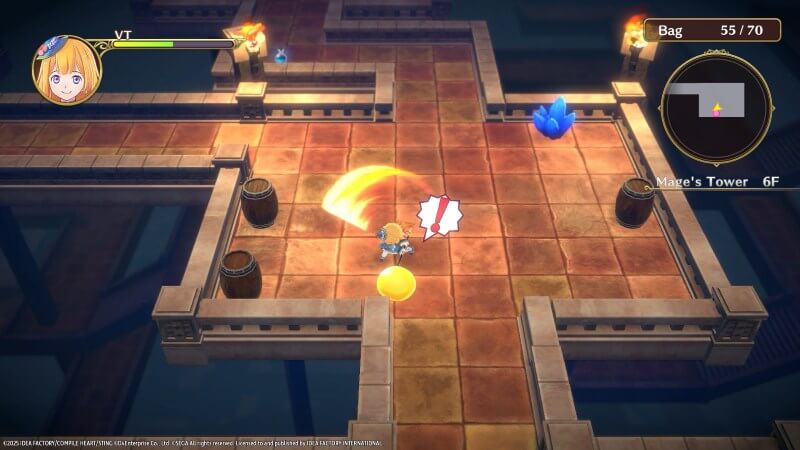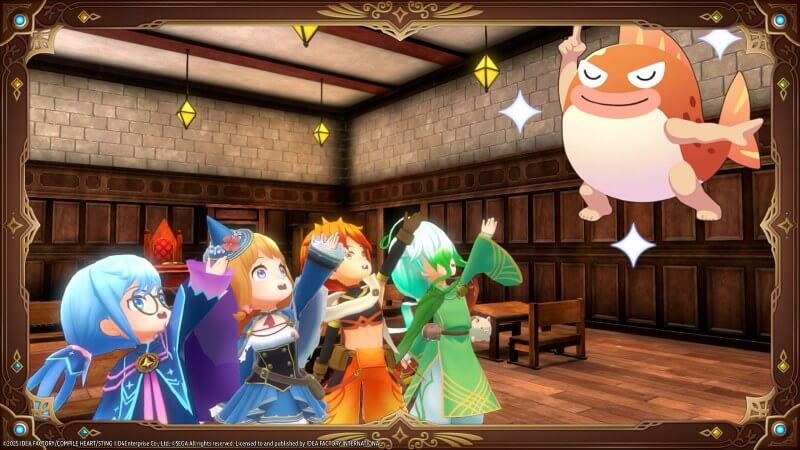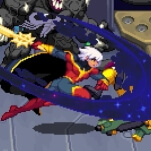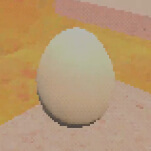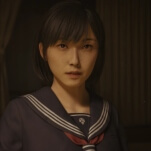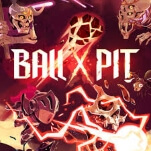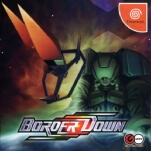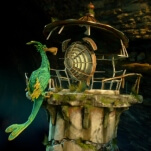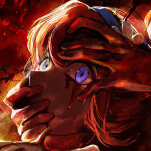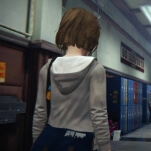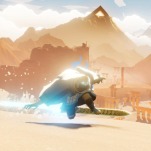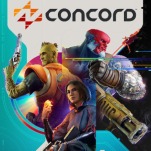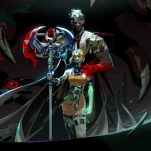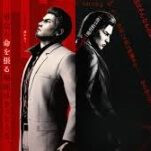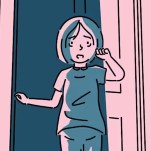The Unlikely Return of Madō Monogatari

A brand new, from-the-ground-up Madō Monogatari game was released on July 28. That hasn’t happened since the 1990s, when the Sega Saturn and developer Compile were both alive and kicking. This game was released worldwide, too, which is not a thing that’s happened since… well, it’s never happened. Madō Monogatari: Fia and the Wondrous Academy, available now on the Nintendo Switch, Playstation 4, and Playstation 5, is a first in this regard.
What’s especially odd about that is how, even if you don’t know what Madō Monogatari is or have never played one, you know these characters. Have you ever played a Puyo Puyo game? Then you’re aware of the whole Madō Monogatari-verse: its characters, its weirdness, that you will sometimes see a dancing fish with visibly muscled arms and legs while you’re going about your business.
Puyo Puyo took off amid the breakout of falling block puzzle games—back when any title with blocks and clears was referred to as “Tetris-style” because we lacked the language to call it anything but that—and its success was enhanced by Sega getting involved with its developer, Compile, to turn it into an arcade game. Madō Monogatari didn’t go away at this point, but the focus would mostly be on remakes and re-imaginings of the original game, putting the series on more and more platforms, while Puyo Puyo became the focal point of Compile’s entire business plan.
Let’s talk about that business plan so we can understand why the release of Fia and the Wondrous Academy is significant. Compile had a few key points that they focused on, both broadly and specifically. They made tons of shooting games—STG, or shmups—and were highly influential in that space thanks to the likes of Zanac and the Aleste series of games. Puyo Puyo eventually became the pillar, but it was far from Compile’s only puzzle game (or its last one). Outside of retail games, Compile put a ton of energy into their Disc Station magazine, which, despite the name, included disks. These were full of demos and smaller games, things Compile was messing around with or had made, fully formed, and only released them via this subscription magazine for Japanese computers like the MSX and PC-98.
One game, released for Disc Station Special: Christmas Edition in 1989, was known as Madō Monogatari Episode II: Carbuncle. Despite the naming convention, this was the first game in the series, and it was much larger than the games that Compile usually included in their Disc Station releases: hence the “Special” issue naming convention, and also the doubled price tag for it. People bought it and loved it despite the price hike, however, because they wanted to play this new first-person dungeon crawler, and they told Compile as much when asked. That sealed the idea of making it into a full game, which was Madō Monogatari 1-2-3, released on the MSX2 in 1990.
It was a first-person dungeon-crawler unlike the ones already out there. For one, it starred a kindergartener climbing a magical tower in order to graduate, and battles didn’t show off numbers. You had to use the facial expressions of the portrait art for your character—Arle—and the monsters she’d fight to gauge how close to losing either was. All combat was magic-based, and not all monsters were the unfriendly sort. There was a right way and a wrong way to play, and you had to figure out what the former was to progress the way you hoped. The game was successful enough for Compile to make sequels, spin-offs, and remakes for all manner of platforms of the day, each a little different than the last, to the point that the Mega Drive remake of Madō Monogatari I had combat that was a mix of real-time and turn-based, and utilized what were basically fighting game inputs for your attacks. They kept changing things, too: Madō Monogatari: Big Kindergarten Kids, released on the Super Famicom in 1996, ditched the 3D, first-person view for an overhead setup.
Even as Compile found success with Madō Monogatari, their continued shoot ‘em up development, and Puyo Puyo, they bled developers. The first major exit occurred in 1989, after Madō Monogatari was introduced via Disc Station, and led directly to the formation of Sting, which was founded by ex-Compile sound engineer Takeshi Santō. Additional waves of Compile employees would join Sting over the next few years, too, many of them involved in Madō Monogatari and Puyo Puyo, including the central figure behind Sting’s masterpiece, Baroque, Kazunari Yonemitsu. This is going to be important later on.
As more developers left—another major wave left in 1993 to form Raizing, which would go on to make their own all-timer in Battle Garegga after devs from Toaplan and more joined up—and Compile started to have more financial trouble, they focused more and more on Puyo Puyo and Disc Station games. Puyo Puyo ended up on more platforms, not just Sega ones: Dr. Robotnik’s Mean Bean Machine was a Puyo Puyo game with Sega branding in North America, while the SNES received Kirby’s Avalanche. Actual Puyo Puyo games with that name would release on Japanese consoles on various systems, too… until Compile temporarily sold the series to Sega, anyway, as part of a plan to be solvent once more. As they retained use rights through 2002, the idea was that they could make money off of the sale, make more money off of Puyo Puyo games, then buy it back from Sega as had been agreed. Sega would publish various Compile games utilizing the characters of Madō Monogatari/Puyo Puyo, like the roguelike, Waku Waku Puyo Puyo Dungeon, and the isometric dungeon-crawler simply titled Madō Monogatari, both for the Sega Saturn—both of which significantly changed up the Madō Monogatari formula even more.
The problem is that Compile did not get their heads back above water in time per the agreement with Sega, however, so they were unable to buy back their most significant series as planned in 2002, and would close their doors a year later. (Meanwhile, Puyo Puyo is the sixth-best-selling franchise in Sega’s portfolio at 25 million units, behind Sonic the Hedgehog, Total War, Megami Tensei/Persona, Like a Dragon, and Football Manager.) Compile’s final game, Pochi and Nyaa, was basically an attempt to reboot Puyo Puyo in a franchise Compile owned, but their bankruptcy proceedings made finishing it impossible, and it had to be completed by a successor company, Aiky, started by Compile’s founder and creator of Puyo Puyo, Masamitsu “Moo” Niitani.
Here’s where things get complicated: Sega owned the Puyo Puyo series and the characters within that specific context, but it was D4 Enterprises—the company to which Aiky and Niitani transferred ownership of essentially everything else Compile—that had the rights to Madō Monogatari the series. D4 didn’t just sit on their compile licenses, either: they used them for various remasters in partnership with Sega over the years—remember, D4 doesn’t have the rights to the characters within the series they have the rights to!—and for their Project EGG re-releases of classic Japanese video games, and have continued to do so into the present: Madō Monogatari 1-2-3 for the MSX2 is currently available on the Nintendo Switch worldwide, even. It’s not translated into English, but it’s there!
Additional complications: Compile had already split off into companies like Sting and Raizing while they were still active, and then Aiky to finish Pochi and Nyaa, but then further splintering occurred, with many of the remnants of Compile forming the Idea Factory subsidiary, Compile Heart, which would be managed by Niitani until 2012. Before his exit, Compile Heart brokered a deal with D4 to make brand new games based on Compile series that they had the rights to. Which is how 2013’s Sorcery Saga: Curse of the Great Curry God was developed. It’s a spiritual successor to the Madō Monogatari series, featuring none of the characters because Sega had the rights to them, but it did attempt to at least feel like it belonged in that universe.
-

-

-

-

-

-

-

-

-

-

-

-

-

-

-

-

-

-

-

-

-

-

-

-

-

-

-

-

-

-

-

-

-

-

-

-

-

-

-

-

